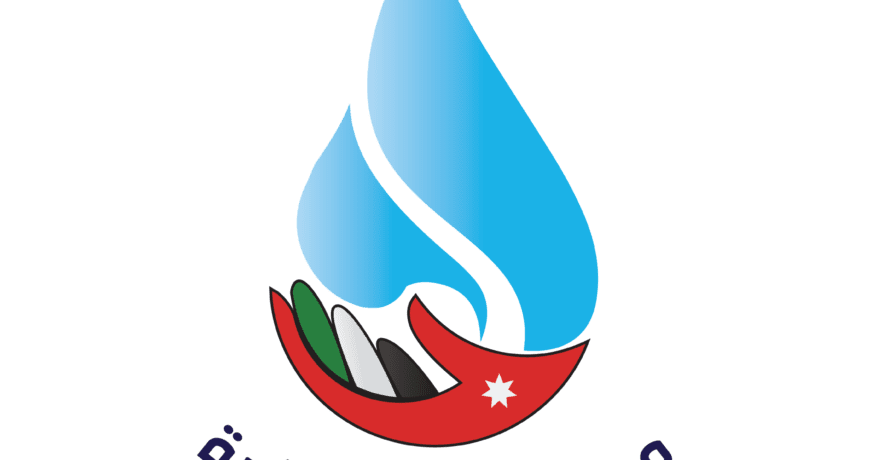For a Drop (من أجل قطرة) water conserving Leave a comment
Under the patronage of His Excellency the Minister of Water and Irrigation and in cooperation with Haider Murad & Sons Group, Leaders Center and River El-Rayan Company for Electrical Appliances.
About the campaign:
Enhancing water awareness in the local community and working on changing behavior and applying the correct behavior to use to build a safe future.
Establishing the use of electrical appliances that save water and energy.
Domestic water management and maintaining the quality and quantity of water and
Greywater reuse.
Conducting lectures and training courses for plumbing for the domestic sector
Work on attending educational workshops for the local women’s sector to raise information and awareness about the use of household appliances in the right ways to work on rationalizing water consumption and reusing it if possible.
In order to meet our society’s growing water needs, we will have to make changes to our daily behaviors and habits in our homes, conserving water at home protects the environment, and energy-saving solutions and devices can help you achieve the goal of saving water and saving time, money and effort in the future.
Water Conservation in the kitchen:
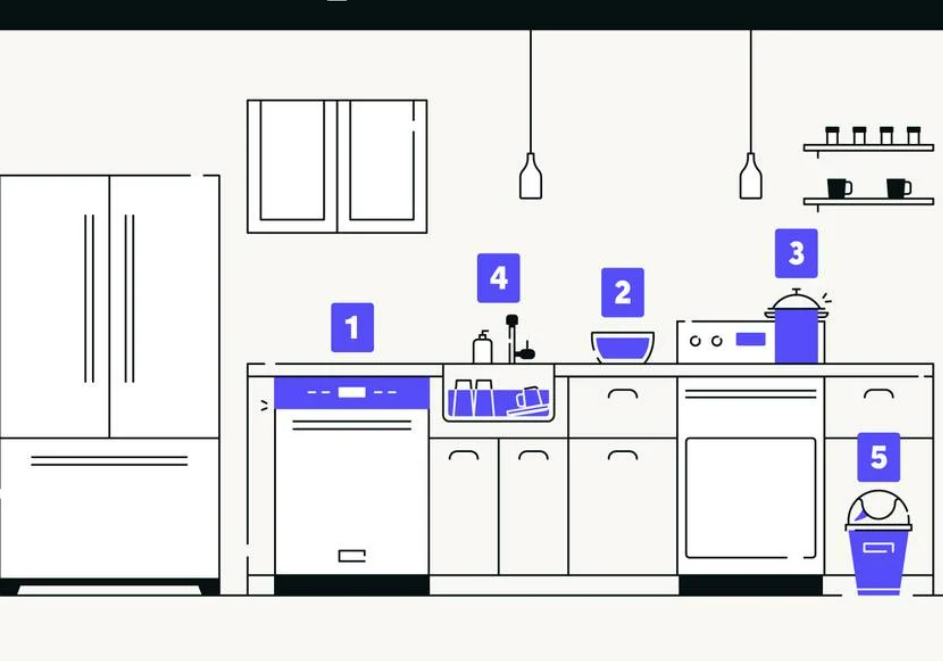
The dishwasher has multiple advantages, it saves water which means less energy, knowing that 80% of the energy in each cycle goes to heating the water.
Here are some easy ways to follow while using the dishwasher:
Here’s some tips on how to conserve water in through your kitchen:
First, ECO program, you can save water by using Eco
It is an energy saving program to drink an amount of water and a low temperature starting from less than in each cycle. Which provides you with the site of cleaning your dish at a lower cost, saving water and money. Provides up to 20% water saving.
Second, make sure your machine is fully loaded before turning it on to ensure it is at maximum capacity, this will help make the most of your machine’s power, water and detergent. Although there is a half load program to save water, it will not equate to half, so it is better to wait until the dishwasher is full and then choose the eco or water saving program which will save the operating cost on water and energy money.
Water saving can also be affected by the way you load your dishwasher, and it can affect the access of water to the detergent dispenser, which may lead to an unsatisfactory result, and you may want to re-wash the dishes, causing you to waste time, energy and water, so be careful not to Overloading, load larger items in the back and smaller items in the front,
Avoid rinsing dishes before loading into the dishwasher. You can use the rinse program if available, or simply remove large food residues from the dishes and wipe your plate with a paper towel before loading and pre-soak the dishes if you have to before loading them into the dishwasher. Don’t worry, all dishwashers nowadays are equipped efficiently enough to get rid of all the dirt on your dishes
To save energy, instead of drying dishes with electric heat or a fan in the dishwasher, simply open the door after the washing cycle and let them air dry. The water used in most dishwashers is hot enough to evaporate quickly, and this method can save 15% of the total energy used from the air-drying cycle in the dishwasher.
Saving Water in your Laundry Room
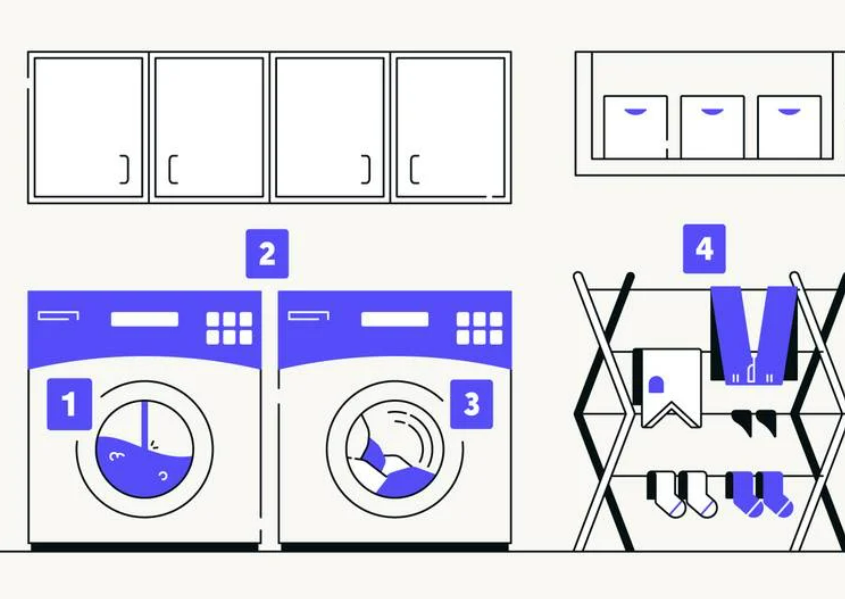
The design of front-loading washers gives clothes a good wash using only a fraction of the water that top-loading washers use, but if you’re a top-loading washing machine fan, choose one with high efficiency (water and energy saving).
When choosing your washing machine, check the energy label when choosing a washing machine with a lower water rate rating. The rating is based on the amount of water used per liter for the washing machine. The lower the water rate, the more water the machine saves. noting that new energy labels provide information about consumption of water usage per wash.
Washing a full load according to your provided KG is the most water efficient option, but if you have only a few pieces of clothing to clean, it is preferable to choose the appropriate program for the small capacity setting. Choosing the appropriate program for each load will save water and improve cleaning results.
Another strategy used to save water is to pre-treat stains to avoid having to re-wash clothes Even if you make every effort to save water and reduce water consumption, a small leak can cause your water bills to skyrocket. Check sinks and water pipes for leaks and drips.
Keep a regular check on the maintenance of your laundry room and pay attention to hose connections and weak spots, check the floor under the machine if you find puddles, this is a problem and a place where the washing machine dumps dirty water,
It is also preferable at times to dry by hanging on a dryer, which saves energy, and reusing personal towels can save approximately 550 liters of water per week.
Save water when using the Dryers are mostly popular in the winter, as dryers offer many advantages Although air drying is best for water and energy conservation, however, in winter it is not preferred for multiple reasons such as limited space for air drying indoors.
They also help save ironing time. Dryers eliminate the need for ironing when used correctly. You will avoid any wrinkles that form without using an iron due to slight heat.
Load the dryer fully. The dryer will take longer to dry the clothes, and a small load may take longer to dry. It is always best to separate towels from cotton or bedding.
Switch loads while the dryer is still warm, this will help you by using the remaining heat inside from the previous cycle to the next cycle.
The dryer will operate more efficiently and safely when you remove the fluff and clean the filter with a toothbrush to remove build-up that can reduce air circulation and cause rust like fluff burns inside the dryer drum. This will help you maintain your dryer and save time re-drying clothes. Drying efficiency decreases due to dirty filter.
If your dryer has a humidity notification option, this will help by teaching you to stop the cycle. It is preferable to open the door when finished to not re-wet the clothes. It also helps notify you when items are dry, which will save energy and reduce tearing on your clothes due to over-drying.
Choose dryers with a high certified energy rating to save between 20 and 60 percent,
Reuse water from the dryer tank. Some dryers have a tank that contains water from wet clothes inside. The water is distilled water and can be used to wash your car, water plants, or fill a steam iron. This way you will conserve water.
Conserve Water in Bathroom
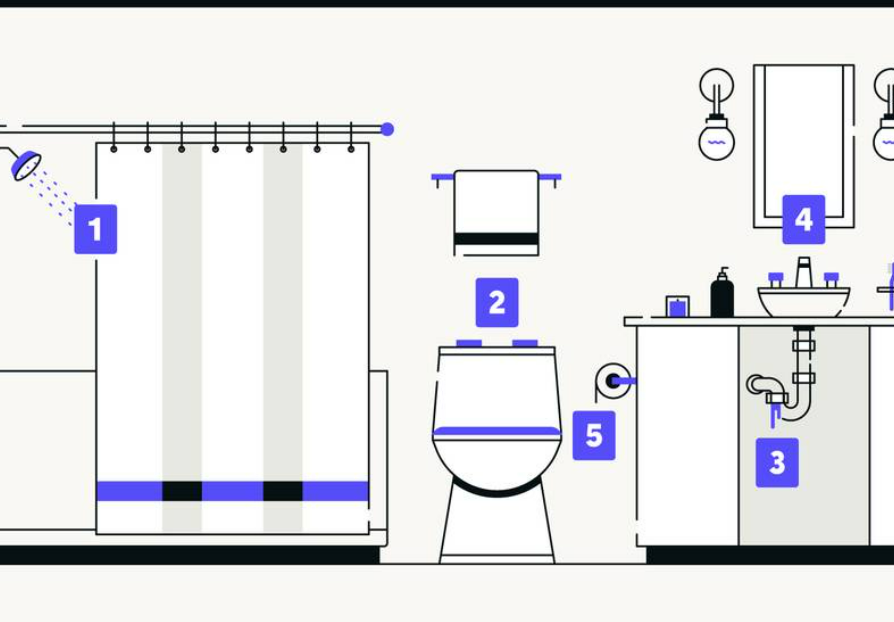
Using a shower instead of filling a bathtub is preferable to using a shower, as its use saves 40% of water consumption. According to studies, a normal shower takes 9-11 minutes, and some people take more, and the saving shower lasts 6 minutes. This does not mean stopping attention on personal hygiene and so on, but We pray that water is spent wisely,
The Toilet consumes 26% of household water consumption, while the non-saving Niagara consumes 12 liters per case, that is, when using a tap once it is possible to drain the entire water tank from Niagara, while the two-button saver uses 6 liters per case because it provides the consumer with the option of using a half or a full tank, and here we can with Modifying daily behavior and working to save water directly with simple operations
While brushing your teeth twice a day is important (and we can’t stress this enough), turning off the tap while brushing your teeth can save approximately 38 liters of water per day. Use a cup, instead of your hands, to rinse your mouth once you’ve finished brushing to save more hydration
Don’t waste up to 500 liters of water on leaky bathroom appliances. These leaking appliances or pipes are a huge waste of water, and the worst part is that you don’t even realize you are using them.
Water Conserving in your Home Garden/ Backyard
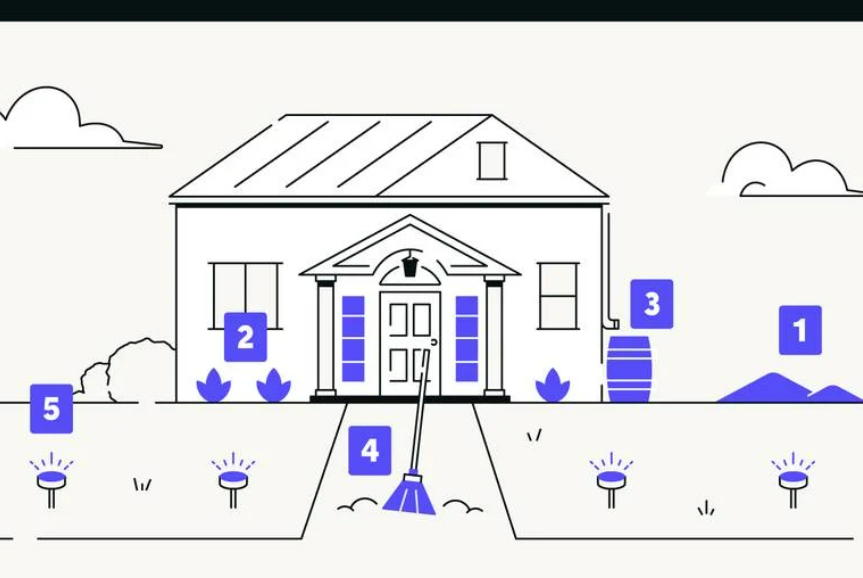
Up to 50% of outdoor household water use is lost due to wind, evaporation and runoff caused by inefficient irrigation methods. Save up to 550 liters of water per week by checking your irrigation system monthly.
This certainly depends on the size and content of your home garden and whether you have a garden or not
You should also adjust your watering schedules depending on the time of day and run sprinklers less frequently in the winter months. In addition, it is preferable to run the sprinklers in the morning to lose a smaller amount of water due to evaporation.
Spend less time and energy watering your garden and increase water conservation by making specific choices when purchasing plants. And work on searching for plants that tolerate high temperatures and are resistant to drought.


